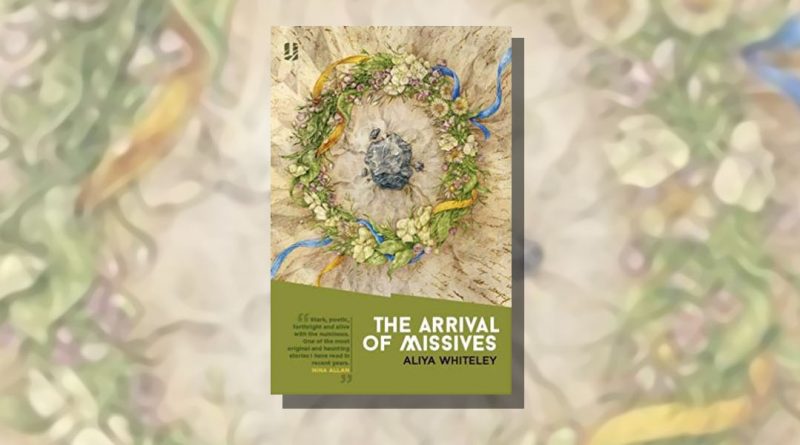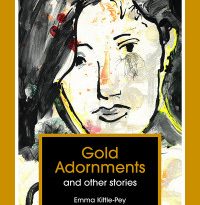The Arrival of Missives by Aliya Whiteley
– Reviewed by Cherry Potts –
This is an odd little novella, a kind of mash up of Flora Thompson and HG Wells with a touch of 12 Monkeys.
if the future was trying to communicate with somewhere like Lark Rise, this is what might happen
School girl Shirley has a crush on her teacher, Mr Tiller, who was disabled in WWI, and wants to be a teacher herself, but she discovers that he has a terrible burden, and she is drawn into his mission to change the future.
This, Mr Tiller tells her, she is to do by by marrying the boy from the forge, who quite likes the look of her, and there is a small amount of (well written) adolescent fumbling, which leads to an engagement being announced, but this isn’t really what Shirley wants from life.
“I post the letter and receive only a mild interrogation from Mrs Crowe at the counter.
‘That’s tuppence. Does your father know you are writing to colleges?’ She asks.
She wears a white ruffled blouse with an air of superiority, but she looks swollen and pained in the way I have noticed happens to many women in the village once they have many babies. The two youngest Crowes, a toddler and a very little one with jam on its chin (at least I hope it is Jam, and she is not raising carnivorous primitives who work at raw meat to be sated! There goes my imagination again), sit in the post office window and wave at the people as they pass. The rest of the Crowes will have already departed for school, no doubt, in the cleanest clothes they could muster. I will be late myself if this conversation continues much longer.
‘At this stage I am only enquiring, Mrs Crowe,’ I say, ‘Exploring all possibilities.’
‘Are you now?’ she says as she puts the letter under the counter. That schoolmaster will have a lot to answer for if he’s putting grand thoughts in your head.’”
The voice of Shirley is breathless and intense – and her thwarted ambitions and pride (she so badly wants to be the May Queen, it is wonderfully incongruous with her other ambitions) are delightful, and leave her ripe for rebellion and manipulation.
The small village community and particularly her father – almost unseen or heard from but somehow present in every scene, are well drawn and her potential beau is believable, and the trip to Taunton is lovely, but then there is the HG Wells side of the story …
I found myself giggling, when I should have been freaked out and filled with dread. The tone of these sections, delivered in the main as letters, is distinctly Victorian (inappropriately so for the setting of the story) and hard to swallow, great chunks of rather predictable exposition.
This was all the more frustrating because there is no nuance – we are not allowed to think that Mr Tiller might be unhinged, (or rather just unhinged, he is driven mad by the missives, but he definitely isn’t imagining it) because of the incontrovertible evidence, that Shirley sees—and ultimately communicates with—herself.
The ending rescues it however, and Mr Tiller’s devastatingly logical and cruel resolution of Shirley’s rebellion seems far more real and plausible than the fears that set it in train. So yes, if the future was trying to communicate with somewhere like Lark Rise, this is what might happen, the impact of the drama disappearing under the ripples of real life – but I would have liked a more persuasive ‘Missive’ in the first place.






